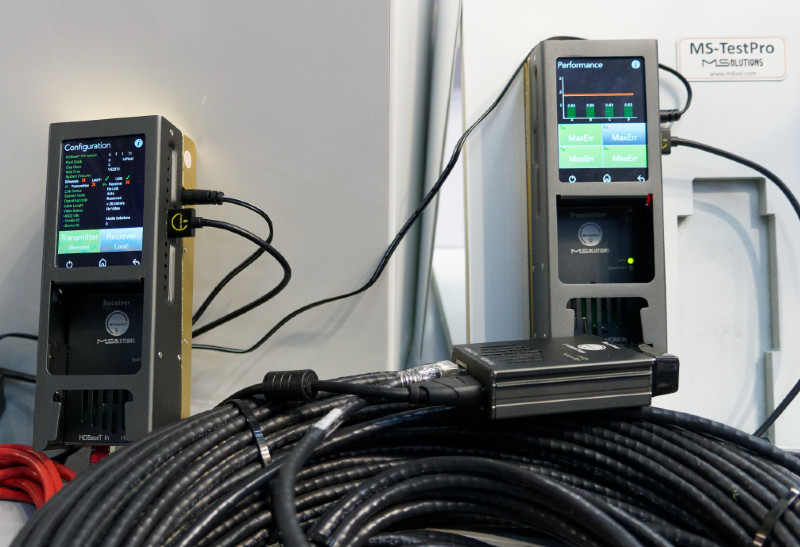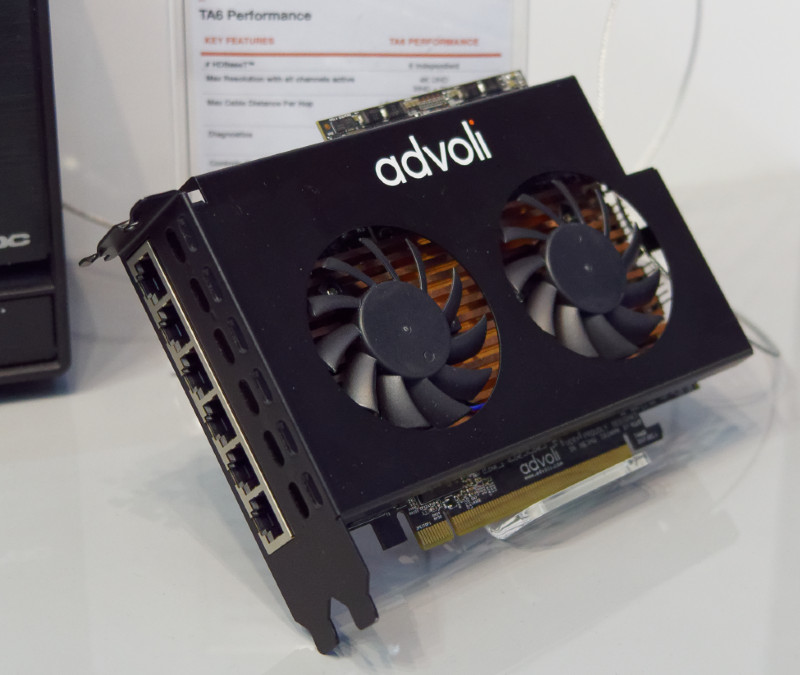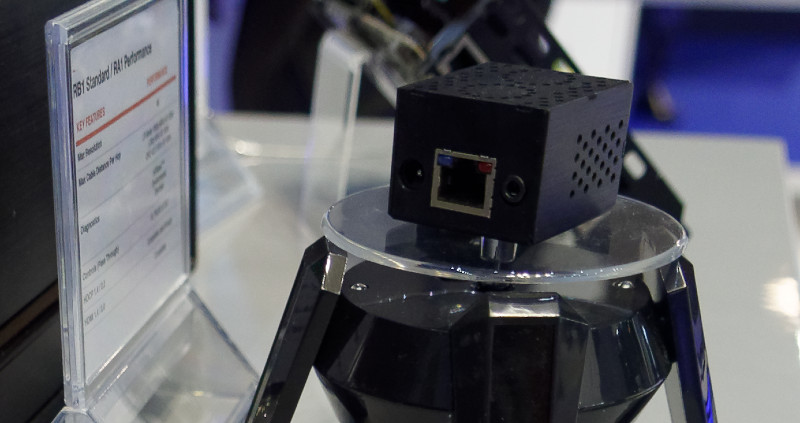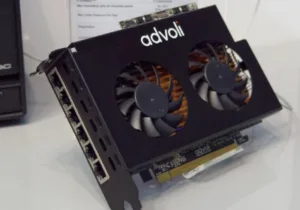The HDBaseT Alliance had a big booth with a number of members taking small parts to show what they were doing. For Valens, the chip maker which is the originator of HDBaseT, the big news recently has been the development of HDBaseT semiconductor switches which simplifies the development of matrix switchers and routers.
First, we spoke to M Solution which has developed a field tester for HDBaseT. The device supports the specification up to the V2.0 level and can run from a power supply, or for five hours using batteries. The tester can check all of the five elements of the interface and can tell the performance of each pair of conductors so that the maximum resolution both up and down can be ascertained. The tester includes a generator that can produce images up to 4K/UltraHD at 30fps.
There is an integrated logger and the company allows 24 hour logs to be uploaded to the web for analysis and for help in solving problems. It also supports firmware updates of HDBaseT ports from the tester as well as EDID management and up and downloading.
M Solution has worked with Belden to allow testing of specific high quality Belden cables. If the test of the cable meets specific requirements, the company can automatically generate a warranty certificate and Belden will back that with a 25 year warranty for the connection.
The first generation tester costs $1,595.
 M Solution’s Pro tester allows Belden Cables to be warrantied. Image:Meko
M Solution’s Pro tester allows Belden Cables to be warrantied. Image:Meko
The second vendor that we talked to on the HDBaseT booth, was Advoli of Taiwan, which was showing its TA6 graphics card which supports six HDBaseT outputs in a half length PCI card to support video wall and other multi-screen configurations. The high end version of the card is based on an AMD E9550 GPU with 8GB and costs $3,000 for pre-order, with samples shipping in March. The lower level versions use an Embedded E8860 GPU with 2GB of RAM. The card uses a modular architecture and supports various Type A and Type B MXM modules which should mean upgradability in the future.
The company showed us a video of a test that the company did in Taiwan, with three of the cards in a single Dual Xeon server chassis which supported 18 simultaneous FullHD videos. The company told us that it stopped at that point as that had needed 1.8km of cable!
The card also has a number of special features including a diagnostics mode to allow connection certification. Other features include the ability to support a range of data including serial and IR control signals and ‘any’ CEC codes. There is a plan to develop a second version TA6 Distance) that will support just FullHD, but over a 150 m distance, rather than the shorter 100M of standard HDBaseT. A third version (TA6 Performance) is being developed for the combination of UltraHD at 30Hz at 100m as well as the 150m FullHD feature.
 Advoli’s HDBaseT PCI Card has 6 outputs and is based on an AMD GPU.
Advoli’s HDBaseT PCI Card has 6 outputs and is based on an AMD GPU.
As well as the graphics card, Advoli has developed a very small receiver. Although very compact, the unit is intended to be robust enough for long term use. For example, there are dual fans which are extremely small and are designed so that the second comes into operation if the first one fails. Power, of course, can come to the receiver over the HDBaseT cable.
 Advoli’s HDBaseT Receiver is very small, but still has dual fans. Image:Meko
Advoli’s HDBaseT Receiver is very small, but still has dual fans. Image:Meko
Analyst Comment
Valens is still looking to develop HDBaseT as an alternative to TCP/IP distribution. The fact that Valens is starting to get additional business from the automotive sector may be very helpful in supporting the overall development of the business. (BR)

